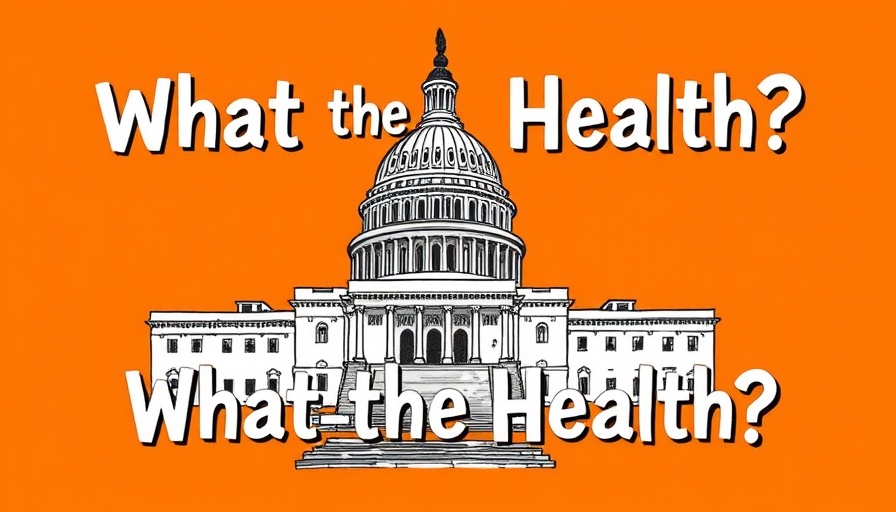
Pivotal Budget Cuts: A New Era for Medicaid
The recent legislative developments in the U.S. House signal a transformative shift in health funding, largely impacting Medicaid—an essential program for low-income individuals and those with disabilities. House Republicans unveiled a bill proposing cuts estimated to exceed $715 billion over the next decade. These cuts predominantly target Medicaid, a program that stands as a financial lifeline for many Americans. As experts and advocates voice their concerns, it becomes clear that the potential repercussions of these cuts could reshape the healthcare landscape significantly.
The Debate: Work Requirements for Medicaid
Among the most contentious facets of the proposed legislation is a new requirement mandating that nondisabled adults work, volunteer, or study for at least 80 hours each month to qualify for Medicaid. Proponents argue that this could incentivize employment among recipients. However, many advocacy groups warn that such mandates often lead to more beneficiaries losing coverage due to complex bureaucracy rather than achieving employment. As one recent report highlighted, these requirements sometimes overwhelm individuals with paperwork, particularly affecting those in challenging socioeconomic conditions.
Implications of Discontinued Tax Credits
A critical issue raised during discussions relates to the potential expiration of enhanced tax credits that have supported affordable coverage through the Affordable Care Act (ACA). By neglecting to renew these credits, the House GOP could inadvertently price many individuals and families out of necessary health insurance, leading to increased premiums in the marketplace. This situation poses a dire warning, as millions may forfeit their ACA coverage, resulting in a health crises for communities across the nation.
Health Secretary Robert F. Kennedy Jr.: The Political Landscape Unveiled
This week, Health and Human Services Secretary Robert F. Kennedy Jr. faced Congress, marking his first testimony since taking office. His responses to questions regarding proposed cuts were evasive at times, raising eyebrows among lawmakers. The scrutiny he faced over vaccine policies and the management of agency resources underscores the intense political environment surrounding health policy today. Furthermore, these exchanges reflect ongoing tensions as healthcare stakeholders react to potential policy shifts that could affect an entire generation’s access to services.
Understanding Broader Impacts and Future Trends
As the GOP’s budget cuts loom large, the broader implications for public health are yet to be fully realized. There exists a juxtaposition between fiscal responsibility and ethical considerations around health access. Cutting funds may address budgetary concerns on the surface, yet it also creates profound challenges in affording healthcare. Future discussions must consider not only the numbers but the human element—vulnerable populations who depend on these vital programs for survival. Some experts predict possible public health crises if these cuts come to fruition, as millions may struggle without necessary healthcare.
The Consensus Among Experts and Advocates
While political divisions often hinder collaborative solutions, the consensus among healthcare professionals and advocates is unequivocal: the proposed cuts could exacerbate health disparities in the U.S. Many call for a comprehensive re-evaluation of the intent behind such policies—highlighting the need for investing in public health solutions that both uplift communities and promote employment, rather than dismantling existing healthcare frameworks.
Taking Action: What Can Be Done?
The situation calls for informed advocacy and community involvement as stakeholders navigate the complexities of health policies. Citizens can engage with their representatives to voice concerns regarding the implications of these cuts. Supporting healthcare advocacy organizations is another avenue where individuals can take tangible steps towards effecting change. Furthermore, understanding the dynamics of federal funding and the health economy will empower constituents to actively participate in shaping future health policies.
In Conclusion: The Future of Health Access
The forthcoming budgetary decisions by Congress present significant challenges for Americans who rely on Medicaid and ACA coverage. As debates unfold, the importance of a well-informed public cannot be overstated. Engaging in dialogue, fostering understanding, and advocating for those most affected by these decisions is crucial as we move forward.
In the face of these profound changes, it’s essential for individuals, especially those in leadership roles, to remain vigilant and informed. As CEOs, marketing managers, and business professionals, understanding these shifts will not only position you as industry leaders but also as champions for equitable health access.
 Add Row
Add Row  Add
Add 




 Add Row
Add Row  Add
Add 

Write A Comment